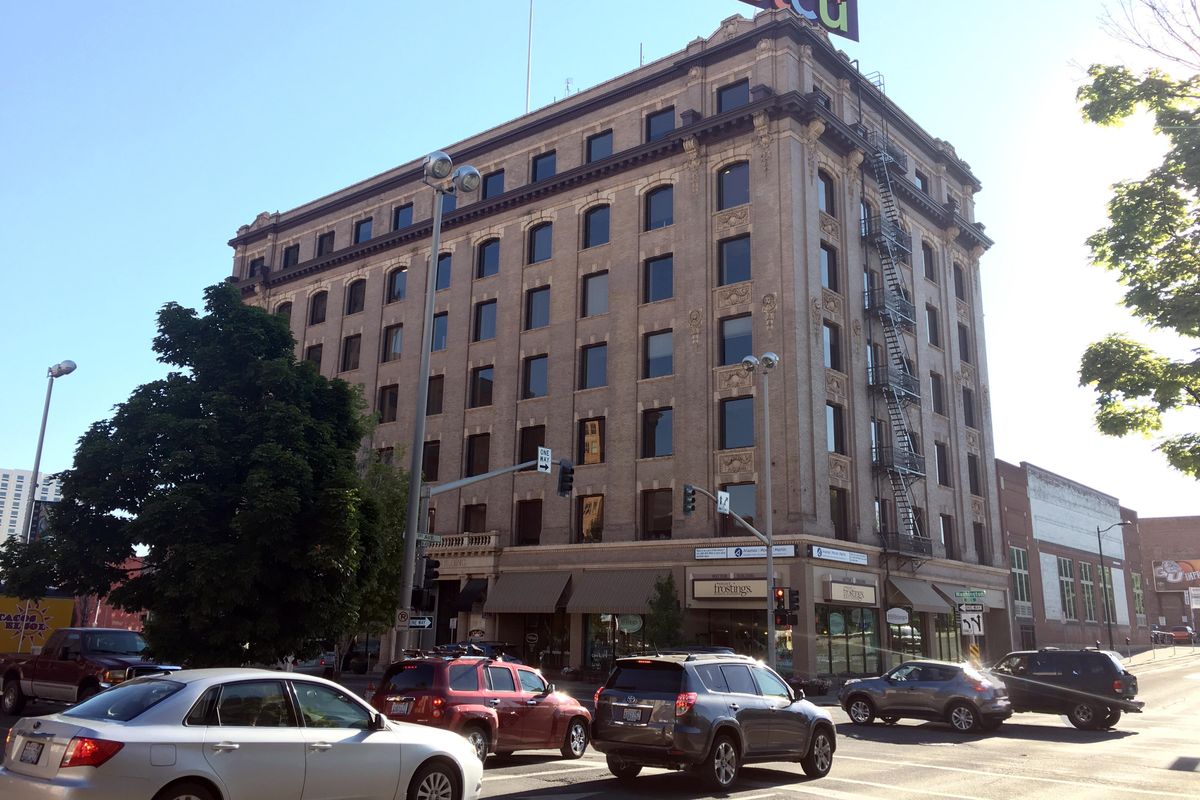Then and now: Hutton Building

Levi “Al” Hutton and May Arkwright had both been orphans. They met in Kellogg when she was cooking at a boarding house where he, a Northern Pacific train engineer, took his meals. They married in 1887 and moved to Wallace.
The two saved and invested in the Hercules Mine, and their dividends began to mount after striking a rich silver vein in 1901. Al ran an ore train and worked in the mine, as did August Paulsen and other future millionaires who would shape Spokane.
By 1906, they had amassed a sizable fortune and moved to the city. Their first big investment was the Hutton Building, finished in 1907. The pair moved into the penthouse and lived downtown for several years.
May joined the Spokane Equal Suffrage Club, part of the struggle to give women the right to vote in Washington. Idaho gave women the vote in 1896.
May was imposing, at a height of 6 feet and weighing 225 pounds, with a brash, outspoken manner. She had clashed with more demure activists in those turbulent years. But women finally won the right to vote in 1910.
While Al conducted business from his office, May gave to charities and became involved in social issues. Ever mindful of her past as an orphan, she would ride around in her chauffeured car and try and talk men, especially farmers, into marrying single mothers in order to keep families together. She would occasionally chase down a deadbeat dad.
More than once, the Huttons took every orphan at the Spokane Children’s Home to the circus.
The couple built a magnificent home on the South Hill at what is now Lincoln Park on 17th Avenue. They moved into the home in 1914. Tragically, May died of kidney disease just a year later.
In her memory, Levi founded the Hutton Settlement, which he called “a home, not an institution,” for orphans, in 1919. At least weekly, the founder would visit the children, who called him Daddy Hutton. He famously got baseball star Babe Ruth, once an orphan himself, to visit the home.
Hutton died in 1928.